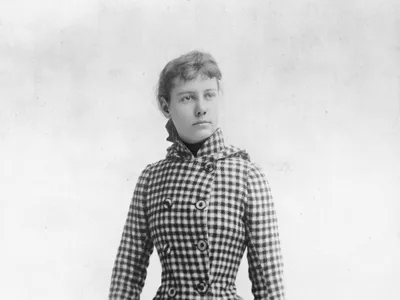masai-land-rover.com – Nellie Bly was a pioneering figure in the field of investigative journalism, known for her fearless approach and groundbreaking investigations that challenged societal norms and exposed injustices. Her work in the late 19th and early 20th centuries pushed the boundaries of what journalism could achieve, setting a precedent for future generations of reporters. Bly’s legacy is marked by her commitment to uncovering the truth and her profound impact on the field of journalism.
Early Life and Career Beginnings
Born Elizabeth Cochran Seaman on May 5, 1864, in Cochran’s Mills, Pennsylvania, Nellie Bly grew up in a family that valued education and hard work. Her early life was marked by financial hardships following her father’s death, which instilled in her a strong sense of determination and resilience.
Bly’s career in journalism began in 1885 when she wrote a fiery response to a misogynistic column in the Pittsburgh Dispatch, catching the attention of the editor. Hired as a reporter, she adopted the pen name “Nellie Bly” and quickly gained a reputation for her tenacity and skill in covering stories related to women’s issues and social injustices.
Groundbreaking Investigations
Nellie Bly’s most famous investigative work came in 1887 when she went undercover to expose the appalling conditions at the Women’s Lunatic Asylum on Blackwell’s Island, New York. Pretending to be mentally ill, Bly experienced firsthand the inhumane treatment of patients, documenting her findings in a series of articles titled “Ten Days in a Mad-House.” Her exposé led to significant reforms in the treatment of the mentally ill and showcased the power of investigative journalism to effect change.
Bly’s adventurous spirit also led her to undertake a journey around the world in 1889, inspired by Jules Verne’s novel “Around the World in Eighty Days.” She completed the trip in just 72 days, setting a world record and further establishing her as a trailblazer in journalism.
Impact and Legacy
Nellie Bly’s contributions to journalism extended beyond her daring investigations. She pushed the boundaries of what women could achieve in a male-dominated field, inspiring future generations of female journalists. Her work demonstrated the importance of immersive and investigative reporting in uncovering social injustices and giving a voice to the marginalized.
Bly’s legacy is also reflected in her later work as an industrialist and inventor, as well as her continued advocacy for social reform. Her relentless pursuit of truth and justice remains a guiding principle for journalists today.
Conclusion
Nellie Bly’s career exemplifies the transformative power of investigative journalism. Through her fearless reporting and commitment to social justice, she not only pushed the boundaries of her field but also left an enduring impact on society. Her legacy continues to inspire journalists to pursue the truth and challenge the status quo, ensuring her place as a pioneering figure in the history of journalism.
